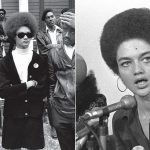Now Reading: The Role of Experiences in Shaping Teen Relationships
-
01
The Role of Experiences in Shaping Teen Relationships
The Role of Experiences in Shaping Teen Relationships

Experiences shape the relationships teens have and how they navigate various moments and challenges they face. Early family interactions, peers, and teen relationship advice all play a significant role in shaping the development of teens and influencing their friendships and romantic relationships. Here are the roles of experiences in molding teen relationships:
Attachment and Coping Skills
Experiences may teach secure or insecure attachment styles and coping habits. These skills are learned early from family interactions, which offer the first model of relationships for teens. Consistent parental involvement and clear communication are required at this stage to help teenagers develop safe attachment styles. Parents can provide this through routines, such as sharing meals, discussing issues openly, and balanced discipline.
As a parent, you can seek professional teen relationship advice. Neglectful environments and inconsistencies increase the chances of poor communication habits, secrecy, and low self-esteem. Such developments may affect future friendships and dating relationships. The right approaches build trust and teach conflict resolution skills.
Social Skills and Peer Relationships
Teens spend a significant amount of time in school settings, where they encounter various social situations that shape their interactions and relationships. Schools offer daily opportunities to make new friends and practice social skills. Natural friendships and hierarchies emerge in every classroom, but group projects and extracurricular activities encourage cooperation. These experiences also build empathy and help push your boundaries.
Positive peer relationships during adolescence are associated with healthier adult relationships. If a teen gets bullied or excluded, they may develop anxiety and distrust or withdraw from social situations. Working with a relationship expert can help your teenage child learn effective ways to set boundaries and identify green and red flags. These skills protect teenagers from abusive relationships and build confidence and trust with kind, respectful, empathetic people.
Romance and Emotional Expression
Many people have their first romantic experiences during their teenage years. These experiences teach teens how to express their emotions and set personal boundaries. Healthy first relationships are more likely to improve communication skills and trust. Unhealthy dynamics often lead to controlling behavior, poor conflict management, or other harmful patterns. Experienced counselors understand the dynamics of teen relationships. They can offer helpful advice on boundary setting, commitment, and communication. Counselors also help shape expectations and standards for teen relationships and future adult partnerships.
Teamwork and Leadership Skills
Teens can participate in clubs, sports, creative pursuits, and volunteer work. These pursuits expose them to various groups of people with unique thoughts and backgrounds. Positive experiences foster teamwork, leadership, and respect for the diverse perspectives and contributions that others offer. Such values can be transferred to personal relationships. Structured activities in supervised environments also encourage safe social behavior. Extracurricular activities teach teens to handle challenges and milestones they’ll later encounter in relationships.
Get Professional Teen Relationship Advice Today
Teen relationships are complex and require the guidance of experienced mentors. Professional counseling and resources teach your teenage child the skills they need for healthy relationships. Get professional teen relationship advice today to learn how to navigate different experiences.





















